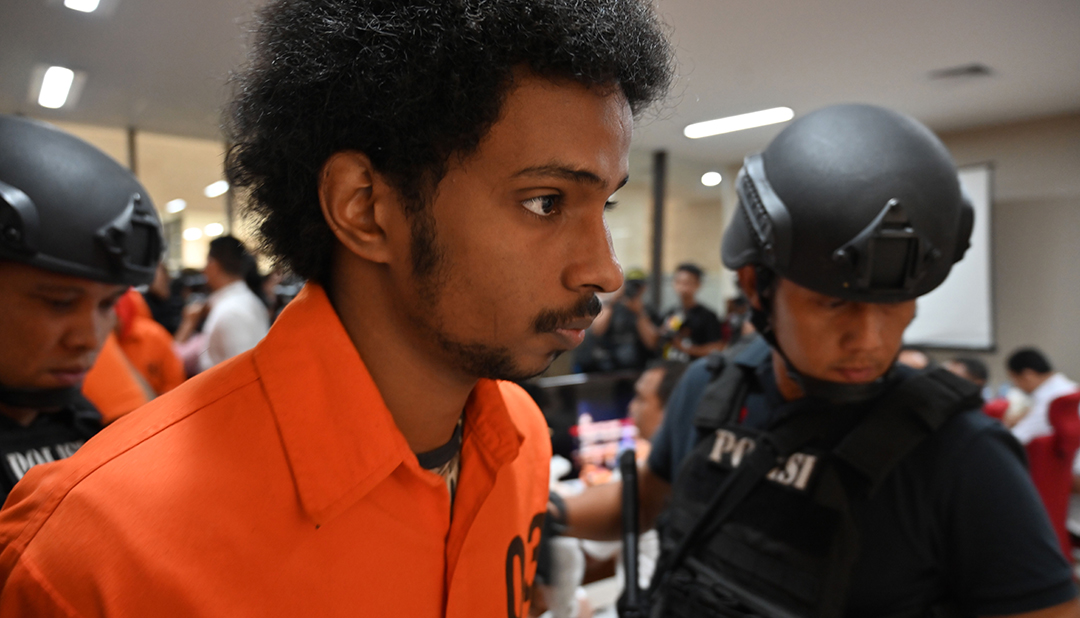Indonesia breaks up suspected human-trafficking ring

Joseph Hammond
Indonesian authorities have dismantled the country’s largest-ever human-trafficking ring with the arrest of four men suspected of trafficking 1,200 Indonesians to work as undocumented domestic workers in Morocco, Saudi Arabia, Syria and Turkey.
Indonesia’s national police spokesman, Dedi Prasetyo, described the April 9, 2019, arrests as “the biggest case that the national police have uncovered because it involved more than 1,000 victims.”
The case reflects the scale of human trafficking in Southeast Asia and how serious the leaders of the Association of Southeast Asian Nations (ASEAN) are about fighting it. A 2019 United Nations report found that incidents of human trafficking worldwide are rising significantly and that Southeast Asian countries are some of the busiest for traffickers. (Pictured: Criminal suspects enter a news conference in Jakarta after Indonesian police say they uncovered a major human-trafficking ring.)
In 2017, ministers from ASEAN member countries agreed to the Bohol Trafficking in Persons (TIP) Work Plan to Combat Human Trafficking, which builds on the Convention Against Trafficking in Persons, Especially Women and Children (ACTIP) previously agreed to by ASEAN leaders, according to the ASEAN Secretariat. The United States has been one of several international donors to this program.
March 4-7, 2019, the Philippine city of Bohol hosted a meeting of ASEAN leaders to discuss progress on the plan, which has a five-year mandate (2017-2022).
“The problem impacts all of ASEAN,” Matthew Yngson of the ASEAN-Caribbean Council, a transregional nongovernmental organization (NGO), told FORUM. “In some countries, individuals are trafficked to support a booming sex tourism sector such as in Thailand.” In countries such as Burma, Cambodia and Laos, victims are sometimes forced into industrial jobs, he said.
Much of that trafficking is concentrated in Asia, according to the United Nations Office on Drugs and Crime. More than 50% of all victims of human trafficking worldwide come from the Indo-Pacific region. The illicit trade generates an estimated U.S. $51 billion in annual profits in this region alone.
Some victims of human trafficking in Southeast Asia are forced aboard maritime vessels involved in illegal, unreported and unregulated (IUU) fishing. Sometimes the laborers spend years at sea working in cruel conditions.
“ASEAN countries have to work together to address illegal fishing and human trafficking,” Thai Deputy Prime Minister Chatchai Sarikulya said in an October 2018 interview with Stop Illegal Fishing, an international NGO. “Thailand encourages our ASEAN partners to share our aims for an IUU-free and socially friendly Southeast Asian region.”
Sexual trafficking of women and girls remains a significant problem. Some of those trafficked by the ring arrested in Indonesia were sexually abused in addition to often working without pay in countries in the Middle East and Europe, Reuters reported.
Joseph Hammond is a FORUM contributor based in London. He recently returned from a reporting trip in the Indo-Pacific region.




